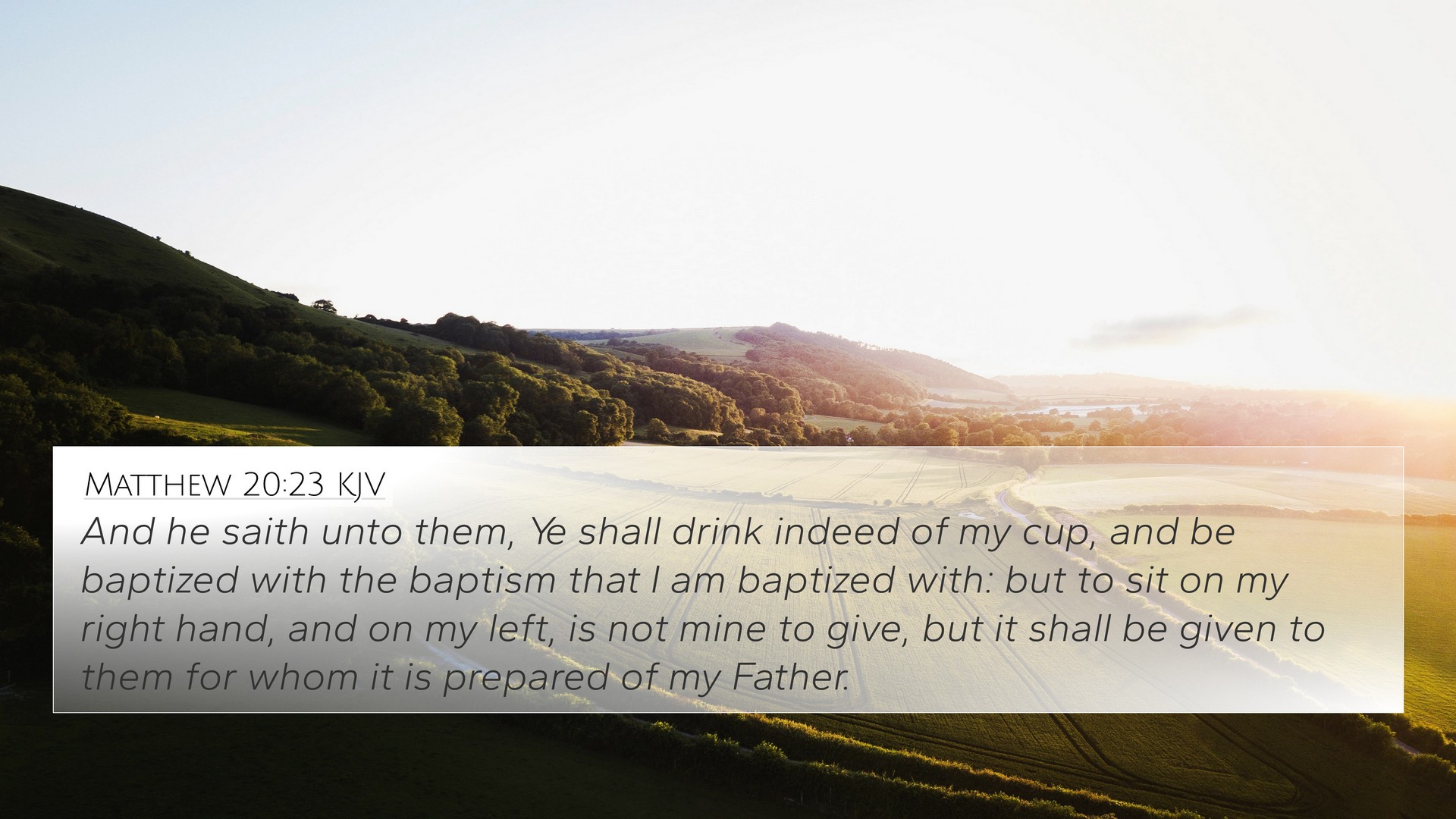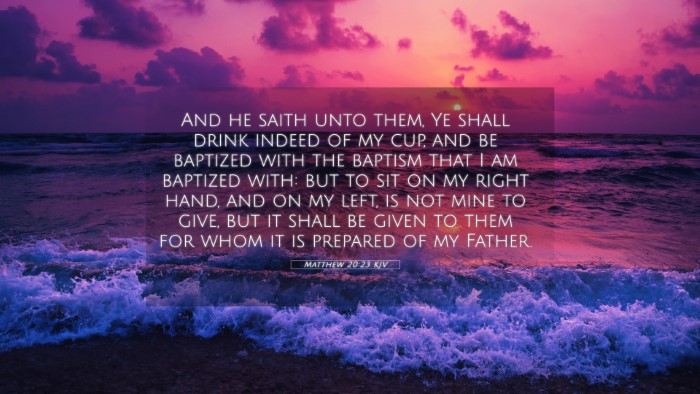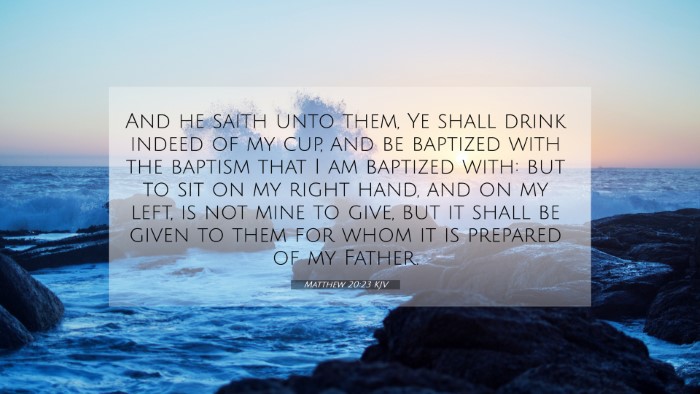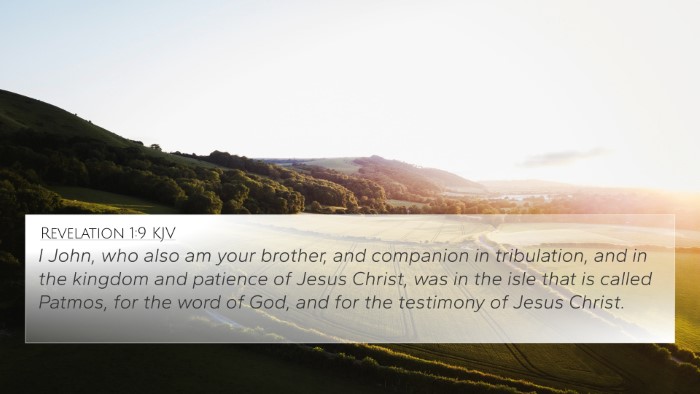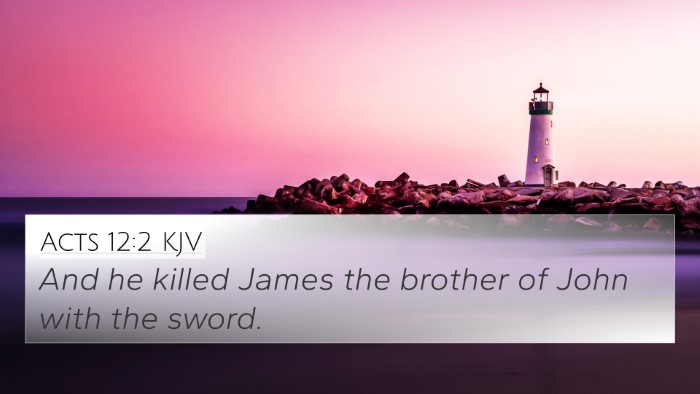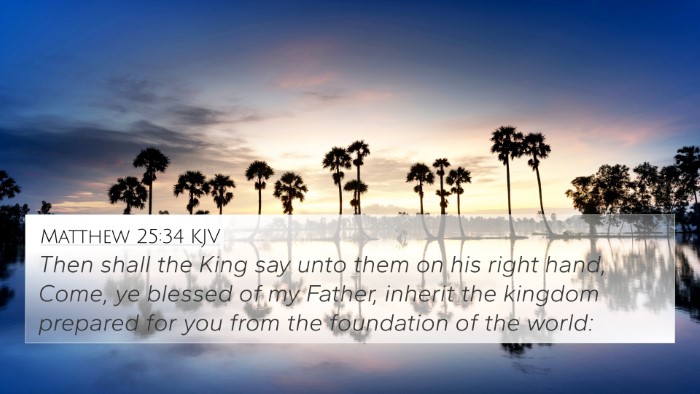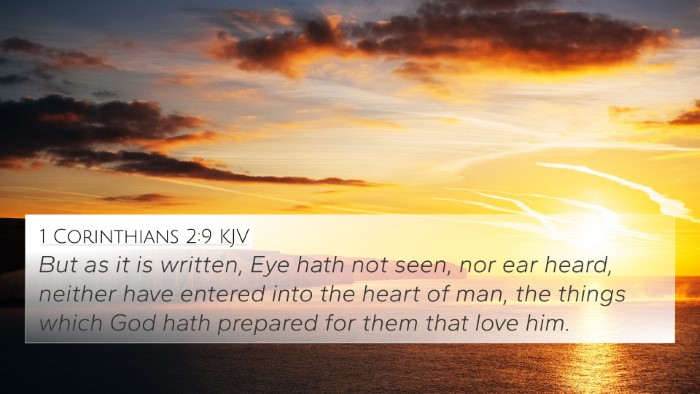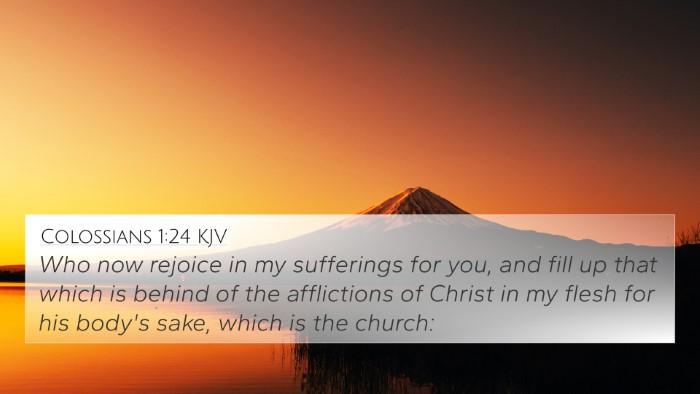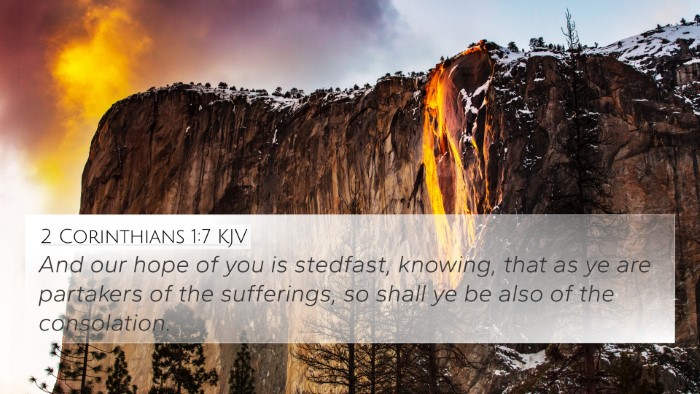Understanding Matthew 20:23
Matthew 20:23 presents an important teaching from Jesus regarding the nature of authority and service in God's kingdom. This verse reads:
"You will indeed drink my cup, and be baptized with the baptism that I am baptized with: but to sit on my right hand, and on my left, is not mine to give, but it shall be given to them for whom it is prepared of my Father."
Verse Context
This verse occurs in the context of Jesus communicating with His disciples about the cost of discipleship and the nature of true greatness within God's kingdom. The disciples, particularly James and John, requested positions of honor, which prompts Jesus to teach them about servanthood and sacrifice.
Meaning and Insights
Here is a synthesis of insights from public domain commentaries:
- Matthew Henry: This commentary emphasizes that the "cup" refers to the suffering and trials that Jesus would endure, indicating that while the disciples may share in His sufferings, the authority and honor in the kingdom are determined by God.
- Albert Barnes: Barnes points out that the phrase "to drink my cup" signifies undergoing the same trials and tribulations that Jesus faced. He notes that the request for positions of authority illustrates a misunderstanding of the nature of Jesus’ mission.
- Adam Clarke: Clarke discusses the baptism mentioned in this verse, explaining it as a metaphor for Jesus’ death. He underscores that the true followers of Christ are called to partake in His sufferings and should not seek earthly honor.
Bible Verse Cross-References
In understanding the themes present in Matthew 20:23, it is beneficial to look at related scriptures. Here are several pertinent cross-references:
- Mark 10:39: "And they said unto him, We can." And Jesus said unto them, "Ye shall indeed drink of the cup that I drink of; and with the baptism that I am baptized withal shall ye be baptized."
- Luke 22:42: "Saying, Father, if thou be willing, remove this cup from me: nevertheless not my will, but thine, be done."
- James 1:12: "Blessed is the man that endureth temptation: for when he is tried, he shall receive the crown of life, which the Lord hath promised to them that love him."
- Philippians 2:5-7: "Let this mind be in you, which was also in Christ Jesus: Who, being in the form of God, thought it not robbery to be equal with God: But made himself of no reputation, and took upon him the form of a servant."
- 1 Peter 4:13: "But rejoice, inasmuch as ye are partakers of Christ's sufferings; that, when his glory shall be revealed, ye may be glad also with exceeding joy."
- Matthew 23:11-12: "But he that is greatest among you shall be your servant. And whosoever shall exalt himself shall be abased; and he that shall humble himself shall be exalted."
- Romans 8:17: "And if children, then heirs; heirs of God, and joint-heirs with Christ; if so be that we suffer with him, that we may be also glorified together."
Thematic Bible Verse Connections
When considering the themes of suffering, servanthood, and divine authority, we can identify how Matthew 20:23 is part of a broader discourse in scripture highlighting the contrast between worldly ambition and heavenly values. Here are some connections that enhance our understanding:
- Suffering and Glory: The relationship between suffering and the subsequent glory is depicted in various passages, notably Romans 8:17.
- Servanthood: The principle that greatness is found through servanthood is a recurring motif in the Gospels, including Matthew 23:11-12.
- God's Authority: The sovereignty of God in assigning roles within the kingdom is emphasized throughout scripture, demonstrating reliance on divine will rather than personal ambition.
Cross-Referencing Biblical Texts
Engaging in cross-referencing can deepen the understanding of Matthew 20:23. Utilizing tools such as a Bible concordance or a Bible cross-reference guide can aid in exploring these connections effectively.
Here are practical tips on how to utilize Bible cross-references:
- Identify key themes: Focus on recurring motifs such as suffering, sacrifice, and servitude.
- Utilize a Bible reference resource: Make use of commentaries and reference materials that outline these connections.
- Engage through study methods: Adopt cross-referencing Bible study methods to explore parallels between texts.
Conclusion
Matthew 20:23 challenges believers to redefine their understanding of greatness in light of Christ's own example. By considering the insights from commentary and engaging with interconnected scriptures, one can grasp the depth of Jesus' message about the necessity of shared suffering and the divine nature of authority in the Kingdom of God.
